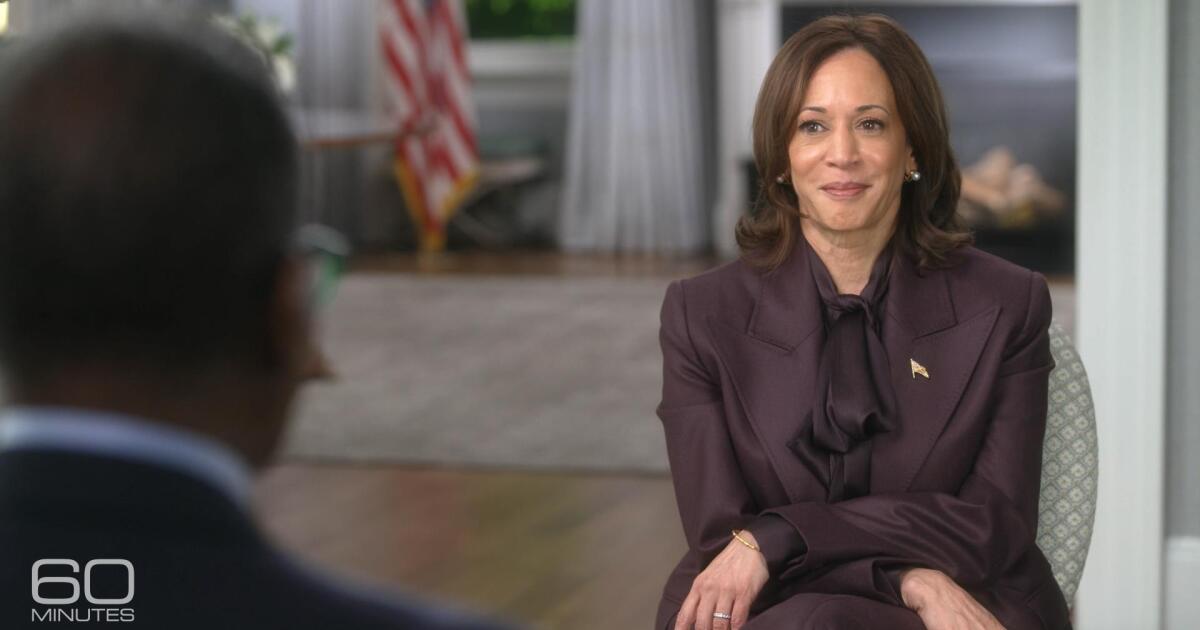For nearly six decades, there have been few media institutions as durable and respected as the CBS newsmagazine “60 Minutes.”
Even as traditional appointment TV viewing fades, “60 Minutes” remains the most watched news program, approaching 10 million viewers in some weeks, according to Nielsen data.
Correspondent roles on the program are the most coveted positions in TV journalism. Its deeply reported stories have influence in an age when other mainstream news outlets’ clout has diminished in a fragmented media landscape.
But “60 Minutes” now faces an unprecedented crisis.
This week, the program lost its executive producer, Bill Owens, only the third person to hold the job in the show’s storied history. His farewell note to staff cited interference from the corporate owner, Paramount Global, which is seeking regulatory clearance from the Trump administration to complete an $8-billion merger with Skydance Media.
Clouding the deal, which requires approval by the Federal Communications Commission, is President Trump’s $20-billion lawsuit against CBS over the program’s October interview with then-Vice President Kamala Harris ahead of the 2024 presidential election. The case goes before a mediator next week.
Trump alleges the program was deceptively edited to favor Harris, a charge that 1st Amendment experts say is spurious. But Shari Redstone, controlling shareholder of Paramount Global, and the Skydance partners want to clear the legal obstacle to close their deal, even if it means a settlement.
A Paramount Global representative declined to comment.
The staff of “60 Minutes” was shaken by Owens’ departure. But no one is expected to follow him out the door, largely because it would be seen as giving in to Trump, said one longtime member of the program who was not authorized to comment publicly.
In the short term, Owens’ exit is not likely to change the hard-charging journalistic values of the program, as many of his lieutenants share his ethos. Executive editor Tanya Simon, who is running the program on an interim basis, is the daughter of the late Bob Simon, a well-known correspondent for the program.
“She is one tough cookie,” said Tom Bettag, a former network news producer who worked on the program and is now a lecturer at the Merrill School of Journalism at the University of Maryland. “The troops admire her.”
While Owens cited corporate interference, there was little evidence of it on the screen.
“60 Minutes” remained dogged in covering the first 100 days of the second Trump presidency, with critical reports on the administration’s handling of Ukraine and the bird flu outbreak. The program brought together a Marine Corps band that was dissolved as part of the administration’s purge of diversity, equity and inclusion programs in the military.
“60 Minutes” staffers credit the drive of Owens, a 25-year veteran of the program, to get tough Trump stories on the air.
CBS executives not authorized to comment noted that “60 Minutes” has a long history of operating independently and Owens was likely not used to the additional oversight implemented in recent months.
Former CBS News president Susan Zirinsky was enlisted last fall to oversee standards at the news division after Redstone became irritated over some of the network’s coverage of the Israel-Hamas war, including a “60 Minutes” piece that criticized former President Biden’s handling of the conflict.
But the larger fear at “60 Minutes” is that the company will settle the lawsuit with an apology and payment to Trump.
Any willingness to placate the president could have the “60 Minutes” journalists and producers looking over their shoulders as they try to do their jobs.
Confidence, swagger and even a bit of arrogance are part of what made “60 Minutes” a TV news powerhouse since 1968. Those characteristics may be undercut by uncertainty over corporate support, making it difficult to aggressively cover the Trump White House.
“People want to work at CBS News and especially at ’60 Minutes’ because they want to work in a place that will stand up and fight for themselves,” Bettag said. “I have students who look at ’60 Minutes’ and say ‘that’s the kind of person I want to be.’”
“60 Minutes” has been subjected to corporate pressure in the past when network owners were involved in merger talks.
When Laurence Tisch owned CBS and was looking to sell the company to Westinghouse in 1995, the network killed a “60 Minutes” story that featured tobacco industry whistleblower Jeffrey Wigand, a former Brown & Williamson executive who revealed that its cigarettes contained additives to boost the nicotine that keeps smokers hooked.
Brown & Williamson threatened CBS with a lawsuit, claiming the interview would interfere with Wigand’s confidentiality agreement with the company. Under orders from its legal department, ‘’60 Minutes’’ did not broadcast the interview or air Wigand’s most damaging charges until after the Wall Street Journal reported on a deposition he gave in another case.
The conflict was dramatized in the 1999 Michael Mann film “The Insider” and stained the program’s stellar reputation.
“60 Minutes” survived that episode and maintained its stature as the gold standard of TV journalism. In recent years, the program has dominated investigative journalism in prime time as its competitors “Dateline” on NBC and “20/20” on ABC have moved exclusively into telling true crime stories.
What is baffling people who have worked on the program is why Paramount Global or Skydance would want to risk damaging the value of an asset that continues to generate millions in profit for the network and provides enviable stature.
“I pray they back off and see that there would be real glory in speaking up and supporting ’60 Minutes,’ which is truly a national treasure,” Bettag said. “It is also a cash cow and it has an identity for a network, which is truly important.”

